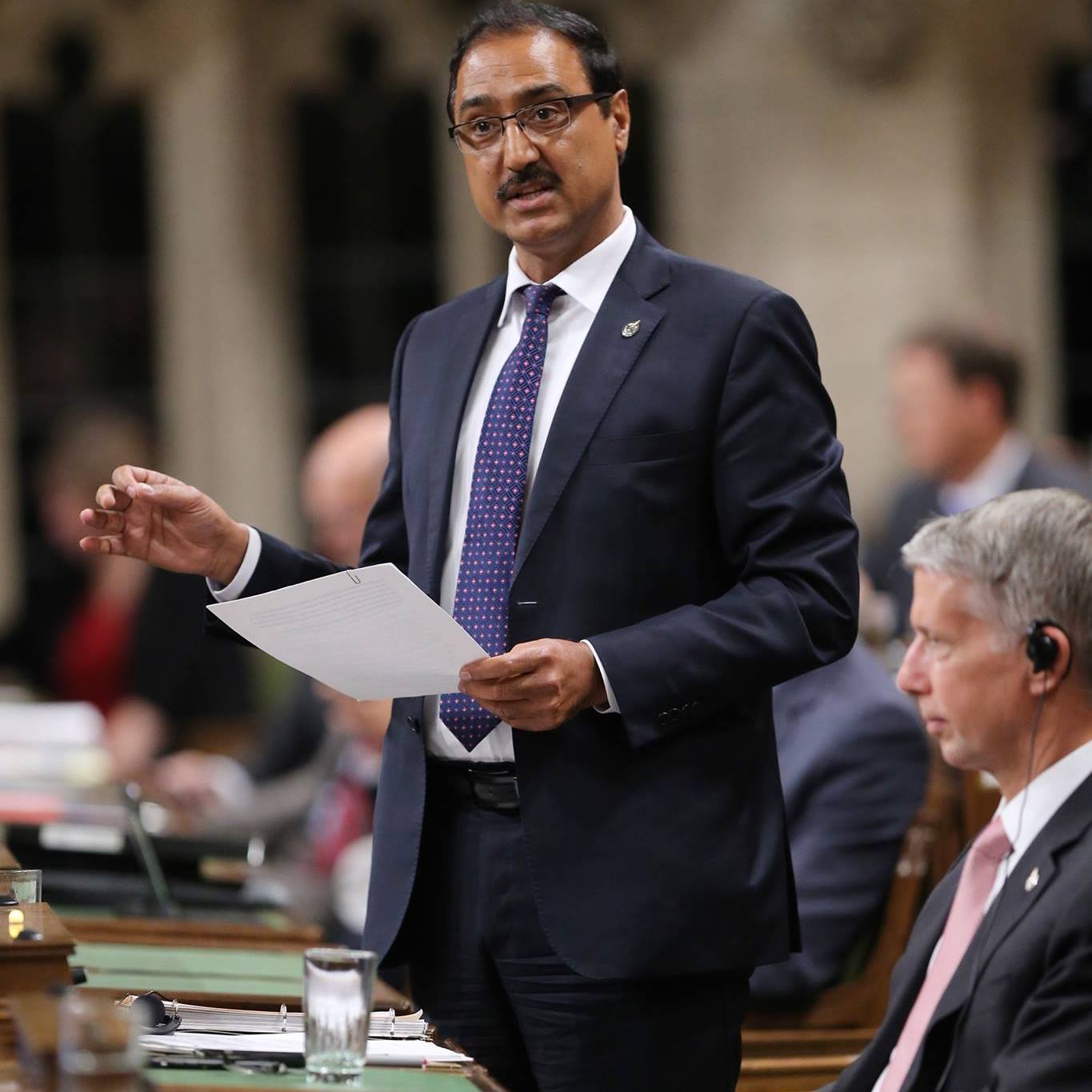Canada News
Minister already met with 22 bands in Trans Mountain consultation redo

“I take this very very seriously,” Sohi said Monday, a few days after his latest trip to meet with communities in British Columbia. “We need to do things differently.” (File Photo: Amarjeet Sohi/Facebook)
OTTAWA — Natural Resources Minister Amarjeet Sohi has personally met with leaders of nearly two dozen Indigenous communities since the Federal Court of Appeal struck down the Canadian government’s approval of the Trans Mountain pipeline expansion in August.
The court said the original consultations with Indigenous communities affected by the pipeline plans was insufficient so the government is planning another attempt. Sohi has already met with people from 22 communities, including most of those behind the successful court challenge, as he tries to set rules for a new round that he hopes will satisfy the court’s conditions.
Sohi says this new round of talks has no deadlines and will follow the court’s blueprint.
“I take this very very seriously,” Sohi said Monday, a few days after his latest trip to meet with communities in British Columbia. “We need to do things differently.”
In rejecting the government’s approval of the pipeline plan at the end of the summer, the court said the consultation plan was sound but wasn’t properly executed. The panel sent to meet with people affected by the pipeline was given no mandate to do anything with what it heard. The bureaucrats took notes but provided little in the way of feedback or answers to questions raised by different band councils. In many cases the communities were told their concerns could be dealt with after the pipeline was built but got no guarantee they actually would be.
Sohi said this time the government has a mandate to adjust the project to deal with communities’ concerns where possible. Where it’s not possible, the government will explain in detail why.
A band councillor from one of the communities in the court challenge that halted Trans Mountain’s expansion is not buying that the government is sincere.
“We’re definitely not seeing a change in behaviour,” said Khelsilem, a band councillor at Squamish Nation. (He uses one name.)
Squamish’s territory sits partially on Burrard Inlet, the coastal fjord in the Vancouver metro area that is home to the Westridge Marine Terminal — the end of the pipeline.
About five oil tankers a month leave the terminal loaded with both crude and refined oil products destined largely for the United States. An expanded Trans Mountain pipeline would triple the amount of oil flowing to the terminal and the number of tankers would jump to 34 a month.
Khelsilem said his community had neither the time nor funding needed to do a proper assessment of the pipeline or its impacts the first time, and says nothing has changed about that.
Sohi insists the government is not proceeding on the assumption cabinet will approve the pipeline a second time. But the Liberals just spent $4.5 billion to buy the existing pipeline from Kinder Morgan Canada in a bid to ensure the construction goes ahead.
Kinder Morgan got cold feet last winter after the British Columbia government threatened to regulate how much Alberta bitumen could flow through an expanded pipeline and went to court to determine if it had the legal authority to do so. The Canadian government tried to broker a deal but at the end of May announced it would just buy the existing pipeline and the work already done on the expansion, build the new one, and then sell it back to the private sector when time and economics warranted it.
Prime Minister Justin Trudeau is on record saying multiple times that the pipeline is going to be built.
Khelsilem said having a minister saying he’s keeping an open mind while the prime minister insists the pipeline will be built is contradictory.
He said he can’t say if Squamish would ever sign off on the project, but that at the very least the community wants the time and funding needed to do its own assessment and set its own conditions on the construction.





















